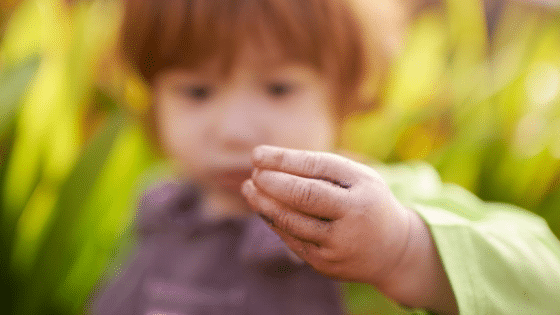At ICEP Europe, we have been citing the benefits of nature and outdoor learning for a long time. However, it is becoming increasingly more relevant as we consider what the new school year may hold and how we could make greater educational use of the outdoor environment. While staggering students’ schedules and continuing distance learning will likely be elements of the new normal, expanding the classroom into outdoor spaces, both on and off the school grounds could address academic, health and economic needs.
Outdoor learning may also help with the issue of equity. There was much talk during Covid-19 about the digital equity divide with distance learning but there is also the issue of inequity around access to nature, for those living in apartments, playgrounds being shut etc. With the current pandemic there has never been a better time to take your class outside and engage with nature.
Nature (Dis) connection
Richard Louv coined the term “nature deficit disorder” in his bestselling book “Last Child in the Woods”, where he described modern-childhood quite adeptly when he declared children to be overprotected, overscheduled and overstimulated, spending less and less time in nature. Back in June this year, Louv was quoted as saying: “Ironically, the 2020 coronavirus pandemic, as tragic as it is, has dramatically increased public awareness of the deep human need for nature connection, and is adding a greater sense of urgency to the movement to connect children, families and communities to nature.”
He also created a list of ways that families could connect with the natural world, including some that don’t require having green space, like setting up a “world-watching window.” In an interview, he recalled the excitement that many people experienced when they saw nature through windows in cities with shelter-in-place orders. “As we sequestered at home, many of us were fascinated by the apparent return of wild animals to our cities and neighbourhoods. Some wildlife did come deeper into cities. But many of these animals were already there, hiding in plain sight.”
Using nature to build resilience
There are so many psychological and physical benefits for us all, particularly children, in being exposed to nature. The ICEP Europe research has been particularly concerned with the impact that nature connectedness has on resilience.
- Nature can promote mindfulness – focusing on a bird a tree a plant the sun or the stars can help us create mindfulness and has a restorative function.
- Nature can inspire awe – looking at beauty or some of nature’s creation can promote this feeling of awe which has a lasting effect on our emotions, even watching a video of natural wonder can produce these positive feelings.
- Children have an inbuilt affinity for nature and natural environments offer the ideal conditions, opportunities, experiences, and interactions for developing resilience. As well as providing a protective factor for resilience, children can meaningfully connect and learn associated skills of adaptability, self-efficacy, active coping, positive emotions, mastery and grit. Building resilience in nature would be an additional benefit of nature connection alongside enhanced wellbeing and the longer-term future conservation of the planet.
We outlined some of the many, many ways that nature can help build resilience in our previous blog.
Schools could be the answer
It is time to take nature seriously as a resource for learning. The outdoor environment encourages skills such as problem solving and negotiating risk which are important for child development. There is a growing movement across many sectors which is embracing this nature connection. For example Forest Schools https://irishforestschoolassociation.ie/about/ or Danish Forest Schools where children are immersed in nature year round.
Dr. Karen Kerr from Queens University Belfast has done a lot of research in this area, in particular around science teaching. Science teaching in the outdoor classroom has been shown to have many positive benefits in supporting primary-secondary transition including cognitive/academic outcomes (of science & practicalities of “big school”), effective outcomes (more positive about learning science, moving to secondary school & sustainability), interpersonal/social outcomes (more comfortable and confident about their transition from interacting with peers) and physical/behavioural outcomes (looking out for or helping primary aged students when they seem them around the school).
In the US, the National Covid-19 Outdoor Learning Initiative launched in June 2020 with the aim of repurposing outdoor spaces as a cost-effective way to reduce the burden on indoor classrooms while providing fresh air, hands-on learning opportunities, and the health benefits associated with increased access to nature.
Why is there not more outdoor learning?
The teachers who engage in outdoor class often have concerns about safety, but these can be easily resolved and new rules for the children in the outdoors established. The main reason cited was the lack of measurability and the need to have evidence to assess learning outcomes. Also, issues relating to funding such as outdoor clothes, teacher training and equipment are a concern. Kuo (2018) also found that there were worries over whether outdoor learning would leave kids bouncing off the walls but in fact the opposite has been found.
Another factor can be lack of knowledge of local environment or natural spaces. there are many helpful resources available but one in particular is the blog of our colleague, Miles Richardson, https://findingnature.org.uk/
If this feels too overwhelming you can work on bringing nature into your classroom for example bringing in herbs and allowing students to experience the smell, texture, and taste of these. Or you can ask students to photograph nature in the local area and share the photos with the class. Watching a video on nature can also provoke positive emotion but not to the same extent as experiencing nature! So, you have no excuse, embrace nature in your classroom and watch the positive results!
Our wellbeing courses run four times a year, in Spring, May/June, Summer & Autumn. Find out more here.




